What happened at the 1966 World Cup?
In the weeks leading up to the 2014 World Cup in Brazil, we'll set the scene for the next instalment of the greatest sporting event in the world by reliving each of its predecessors. We continue the build up today with the eighth World Cup, and the first to be won by the home country since Italy did so in 1934.
Who: 16 squads from Asia (1), Europe (10), North America (1) and South America (4).
What: The eighth World Cup, and the only one to be held in England.
Why: Football and obsession.
When: July 11, 1966 to July 30, 1966.
Where: Seven cities across England.
The Final: England 4 - West Germany 2
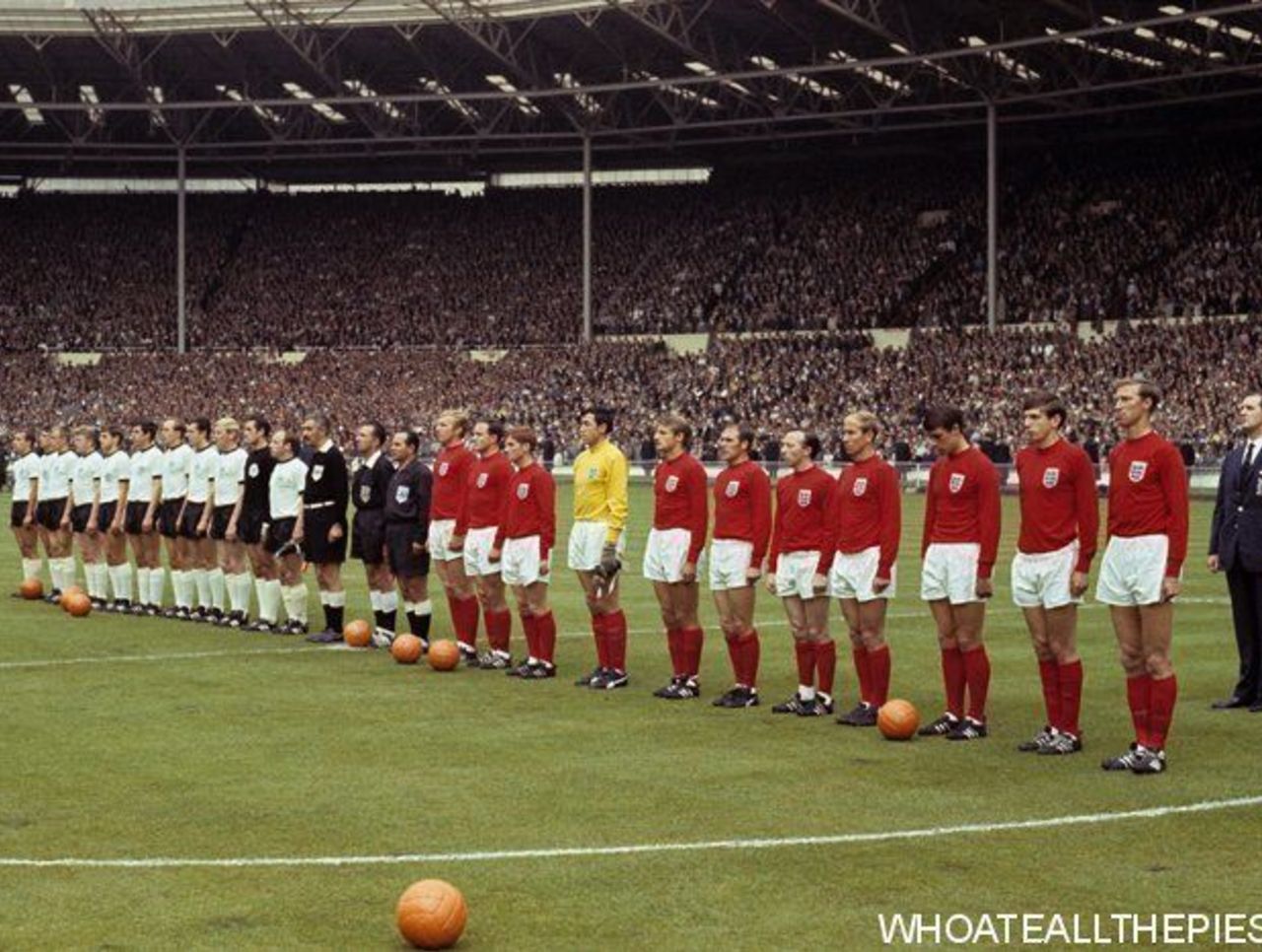
The most dramatic World Cup final ever was played in front of almost 100,000 people at Wembley Stadium in London. Twelve minutes in, the West Germans went ahead when a clearance fell at the feet of striker Helmut Haller who made no mistake in firing his shot past English goalkeeper Gordon Banks. Six minutes later, England equalized when captain Bobby Moore’s cross was headed in by Geoff Hurst.
The two nations traded scoring chances for the next 50 minutes, with neither completely controlling the run of play. It was the very definition of a deadlock until England won a corner in the 78th minute. The delivery into the box from Alan Ball was perfect, but Hurst’s initial shot was blocked. The rebound came to Martin Peters, who calmly collected the ball and scored.
As time wound down, it seemed as though England would finally win a World Cup, just as their manager, Alf Ramsey, had promised when he took control of the side more than three years earlier. Then, disaster.
Swiss referee Gottfried Dienst awarded a free kick to Germany with only a single minute left in the match. The ball was launched into the box where it ricocheted around the feet (and as England claimed, hands) of forwards and defenders until Wolfgang Weber scored to tie the game.
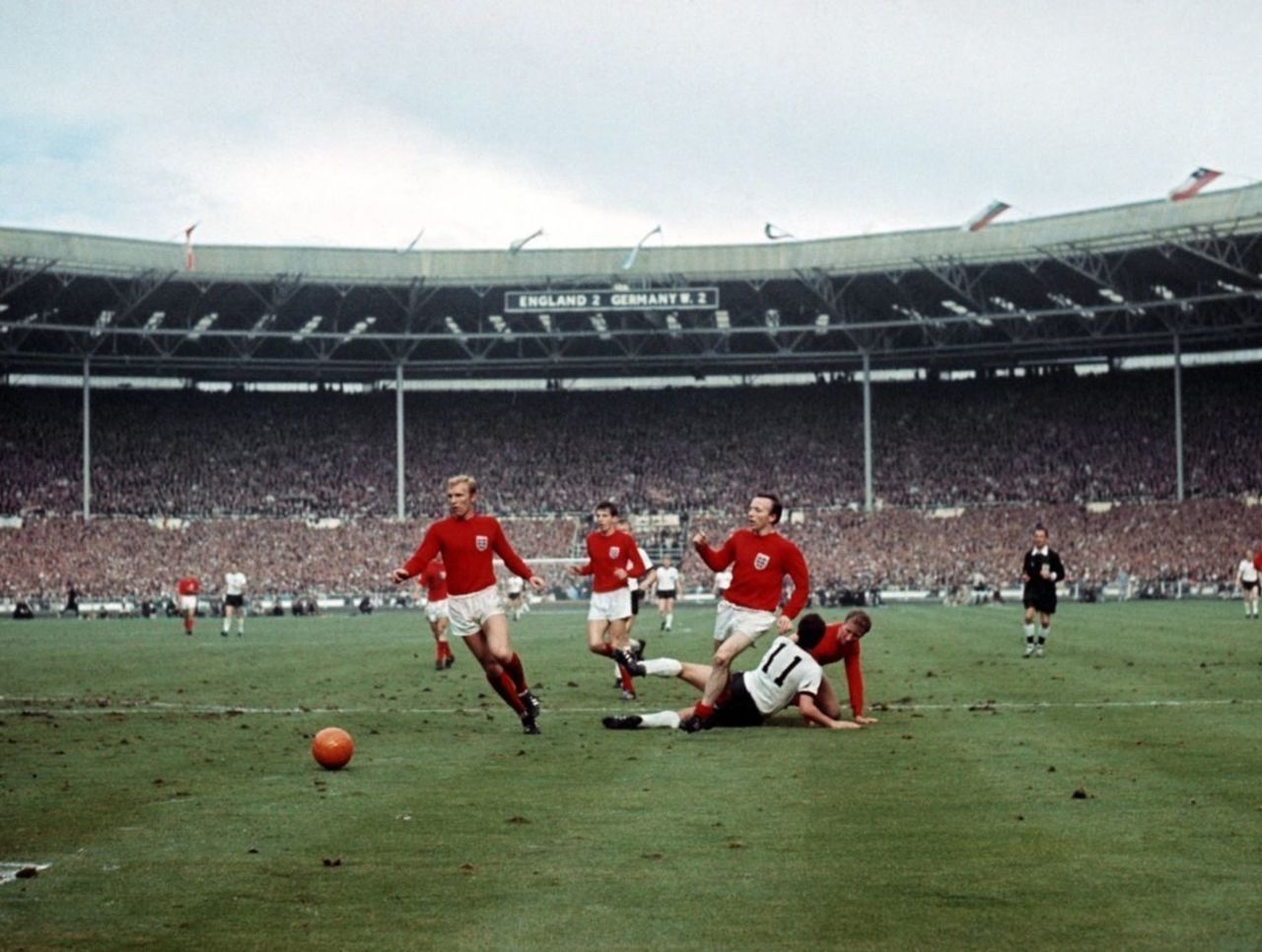
In extra time, Hurst would cement his role as hero by “scoring” in the 98th minute on what looked like a shot that hit the crossbar, and bounced downward on the goal line, but not past it. Unsure of whether the entire ball had crossed the line, Dienst conferred with linesman Tofik Bakhramov, who pointed toward the center circle to give England a 3-2 advantage, and send the spectators into rapture.
Debate over whether the ball had actually crossed the line has raged ever since. It was inconsequential to Hurst, who scored again in the final minute, bringing about a celebratory pitch invasion from the English supporters.
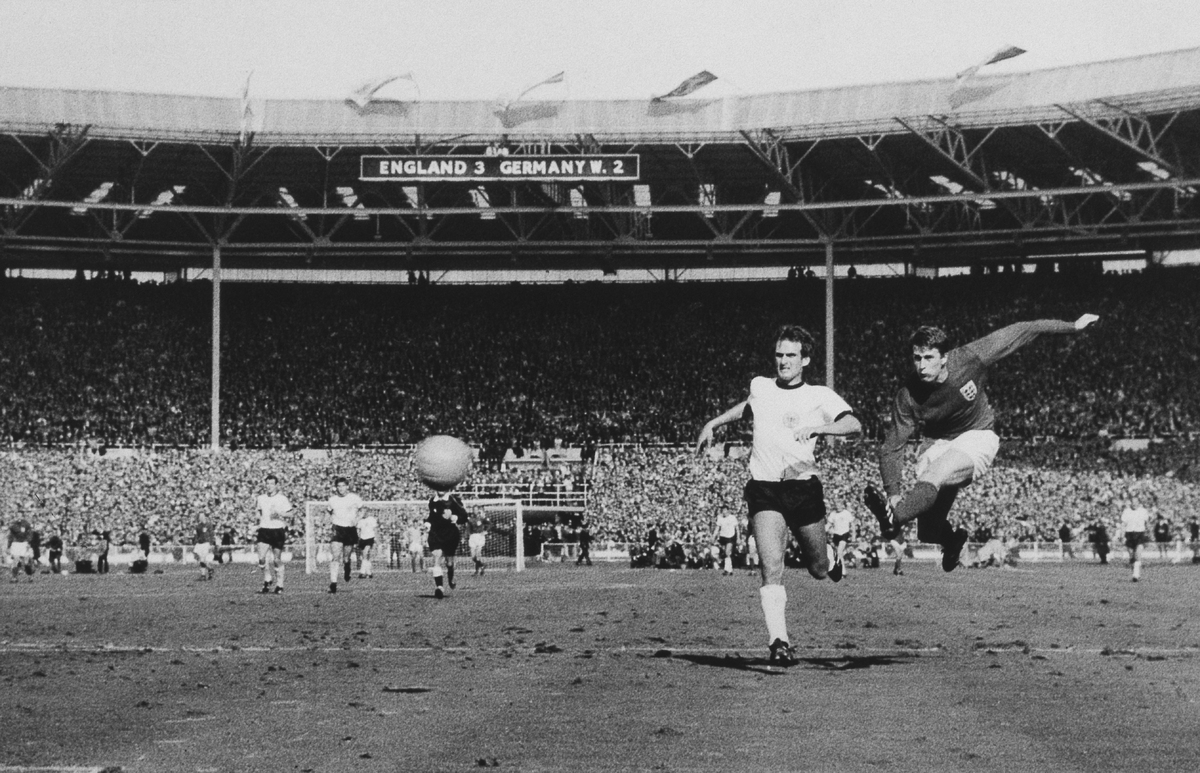
BBC commentator Kenneth Wolstenholme famously described the scene, “Some people are on the pitch. They think it's all over. It is now!" England were finally World Cup champions.
How Did It Happen?
England won the right to host the 1966 World Cup because Arthur Drewry, the chairman of the English FA, was also FIFA President during the bidding process. Sadly, he’d die five years before the World Cup would kick off in England.
Golden Boot
Eusébio - Portugal (9 goals).
Major Innovations
No more naturalized players;
Tests for doping;
World Cup Willie was the first World Cup mascot; and
Matches were televised live throughout Europe.
The Controversy
Several African nations boycotted the tournament after it was decided that the African champion wouldn’t receive automatic qualification, but rather would have to beat a team from the Asian or Oceanic zone to advance to the final. They made a good point. It was called the World Cup, but nations from continents other than Europe and South America had several hoops to jump through just to compete in the tournament.
Craziest Match: Portugal 5 - North Korea 3 (Quarterfinals)
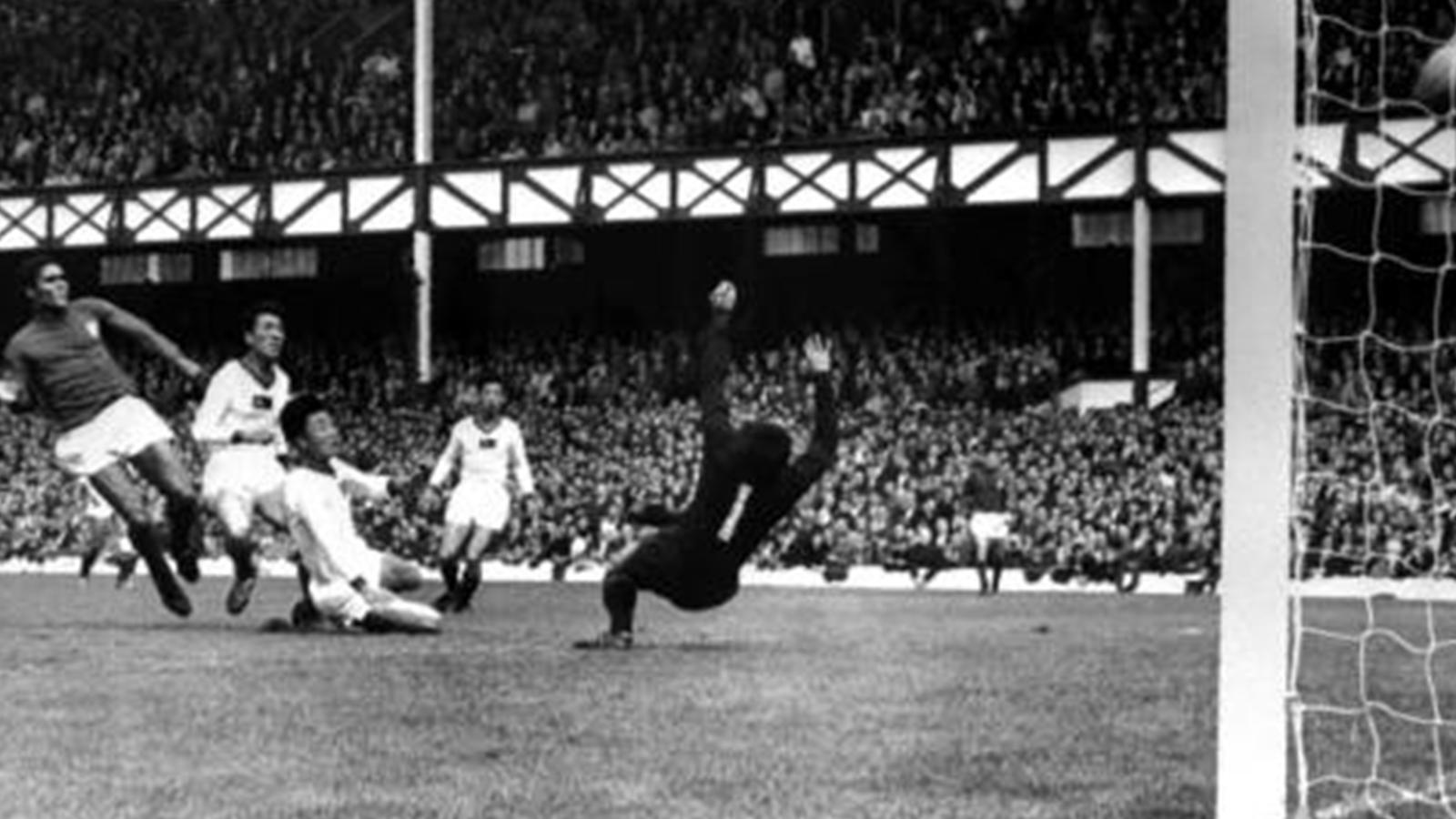
After shocking Italy in the group stage, the Cinderella North Korean squad looked ready to claim another upset victim when they went ahead 3-0 against Portugal, after 22 minutes. It wasn’t to be though, as Golden Boot winner Eusébio would take over the match in one of the greatest individual performances in World Cup history. He scored four times in 30 minutes, two on either side of the half, to put Portugal through to the next round.
Pickles: The Tournament’s Biggest Discovery
In the lead up to the World Cup, the Jules Rimet trophy was put on display at a public exhibition in London, where it was — of course — stolen. With organizers fearing the trophy would be lost forever, a dog named Pickles discovered it a week later wrapped in paper at the bottom of some bushes in south London where he was preparing to relieve himself.
An Unusual Setting
France and Uruguay played their group stage match at London's White City because a greyhound race was previously scheduled for Wembley, and the organizers refused to cancel it despite FIFA’s pleas.
An Unfamiliar Feeling
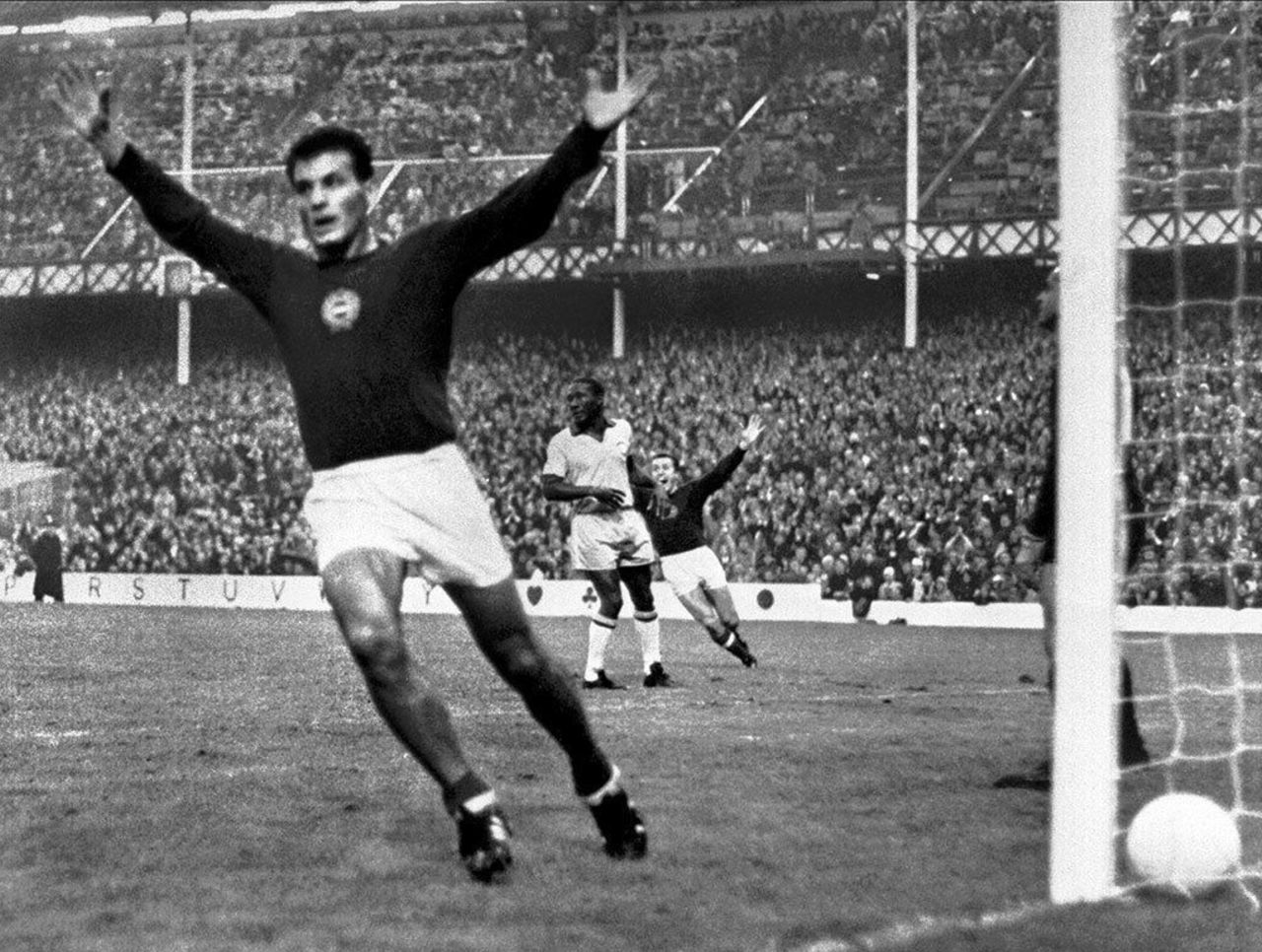
When Brazil lost 3-1 to Hungary in the group stage, it marked the country’s first loss at the World Cup in a dozen years, ending its streak of 13 consecutive undefeated matches (11 wins and two draws). Brazil would go on to become the first reigning champions not to advance into the knockout stage.
Pelé Had A Boo Boo
Throughout the group stage, opposing teams neutralized Brazil’s attack through a constant barrage of hard tackles on Pelé. After losing 3-1 to Portugal, in a match that saw him consistently abused by defenders, Pelé swore he’d never play in a World Cup again.
Welcome Home
When Italy crashed out of the tournament at the hands of the North Koreans, they arrived home to an angry mob of fans who threw fruit and rotten tomatoes as they were transported through the airport.
Home Nation Heroes
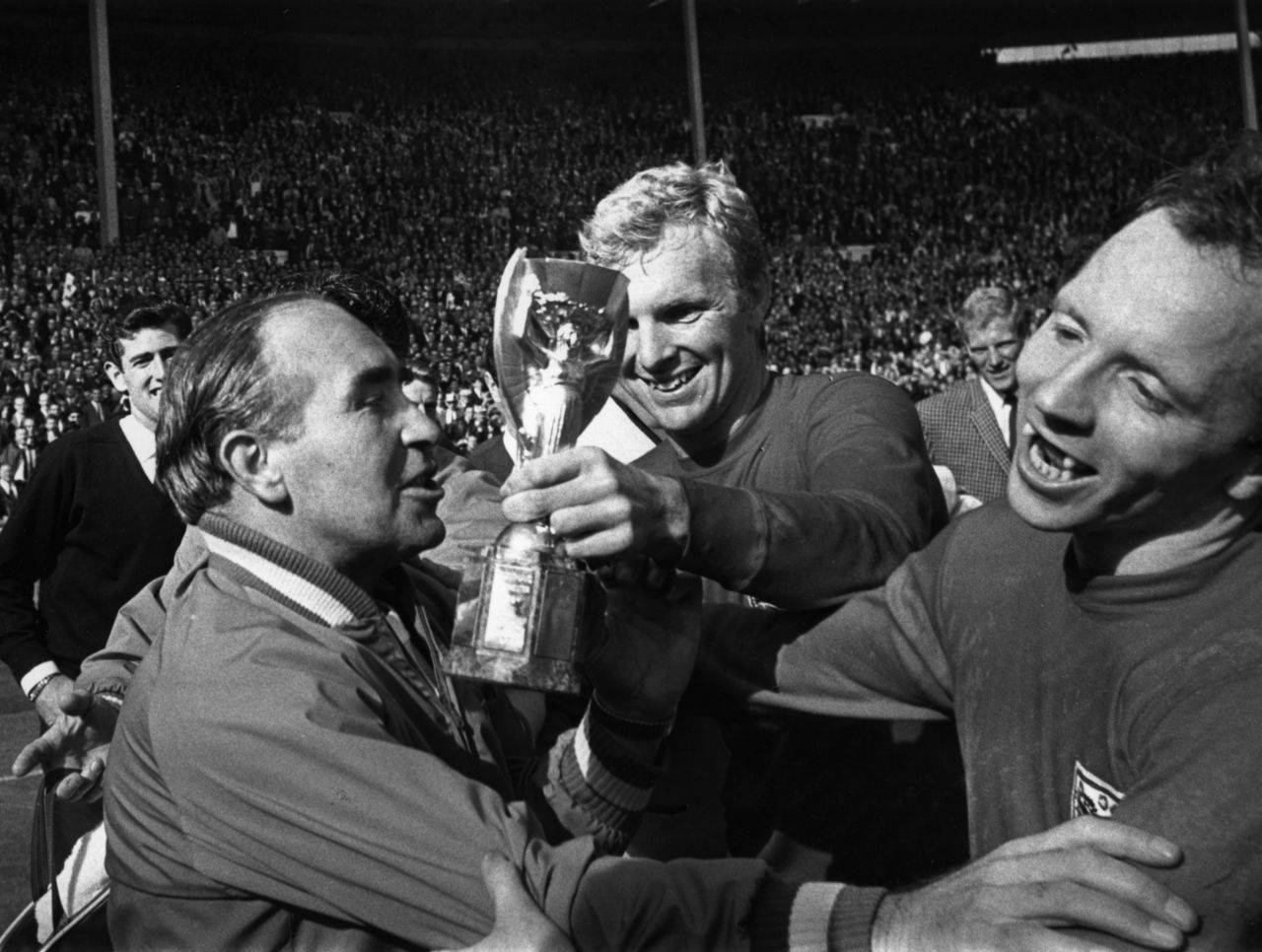
The 1966 World Cup was the first to be won by the host nation since Italy’s triumph in 1934. Only four other countries have won the World Cup at home: Uruguay (1930), West Germany (1974), Argentina (1978) and France (1998).
Legacy
England’s game is football. They invented it. They played it. They obsessed over it.
Nonetheless, they had never won the sport’s greatest competition. As hosts of the 1966 World Cup, they’d have their greatest opportunity to change all that, and reverse a history that had only provided disappointment to date.
To make good on this opportunity, England had to rely on a mixture of skill, luck and happenstance. They had to take care of things within their control, and hope for the best from all that happened outside of it. People speak of destiny and inevitability, but the truth is that purpose and randomness constantly combine to form outcomes we celebrate as something bigger.
In this instance, the coupling provided a drama that seemed destined since the very origins of the game.
HEADLINES
- Kimmich, Neuer headline absentee list for Bayern against Heidenheim
- Dortmund up to 2nd after comfortable win over Monchengladbach
- The Best FIFA Awards: Dembele, Bonmati collect top prizes
- Kane's late penalty saves Bayern point in clash with rock-bottom Mainz
- Dortmund held at Freiburg after Bellingham sent off